Things to avoid during pregnancy
Congratulations on your pregnancy journey! Embarking on the miraculous journey of pregnancy is both exciting and overwhelming. However, it’s crucial to navigate this period with caution to ensure the well-being of both mother and baby. In this comprehensive guide, we'll explore essential tips on things to avoid during pregnancy to ensure a safe and healthy outcome. From dietary choices to lifestyle habits, we'll provide a holistic approach to empower you with the knowledge needed for a smooth pregnancy journey.
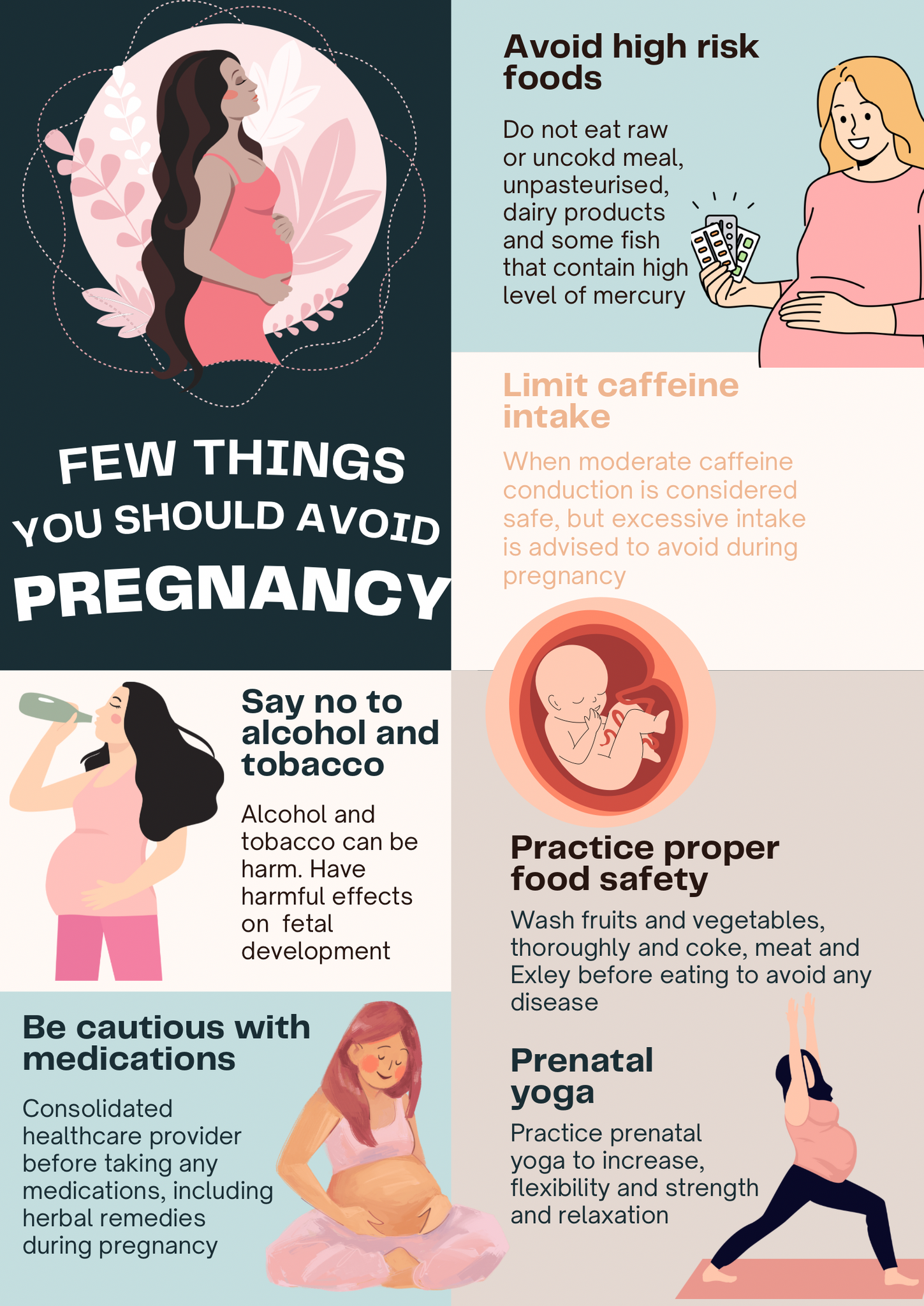
Avoiding Harmful Substances:
During pregnancy, it's essential to steer clear of harmful substances such as tobacco, alcohol, and illicit drugs. These substances can pose serious risks to both you and your baby's health. Smoking, for example, exposes the fetus to harmful chemicals, increasing the risk of preterm birth, low birth weight, and developmental issues. Quitting smoking not only improves your own health but also enhances fetal development and reduces the likelihood of complications during pregnancy and childbirth.
Did you know: 23% of women enter pregnancy as a smoker and that number is 10% by the end of pregnancy.
Use of tobacco and Smoking
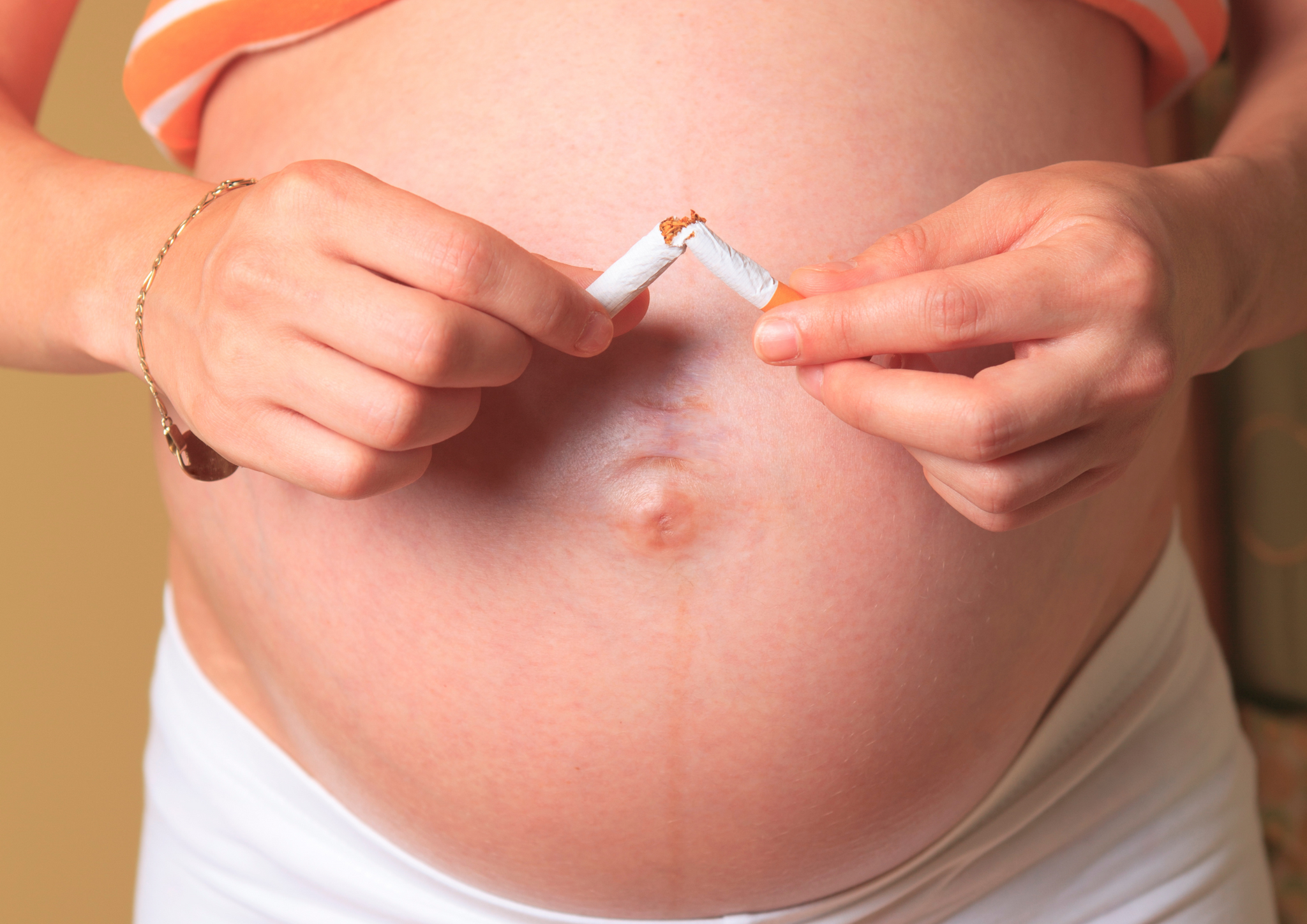
"Babies whose moms smoke are at a higher risk of being growth-restricted, higher risk of delivering early and needing to spend time in the neonatal intensive care unit. They are also at a higher risk of long-term brain and lung abnormalities as well as other birth defects like cleft lip or an abnormality of the stomach and bowel called gastroschisis which is pretty significant. They're also at a higher risk of what's called placental abruption which is where the placenta can actually separate from the uterine wall early and that can cause a hemorrhage and is life-threatening to both mom and baby.” OB-GYN Dr. Erica Schipper

Tobacco use during pregnancy is associated with an increased risk of complications such as preterm birth, low birth weight, and birth defects. Quitting smoking before or during pregnancy can significantly improve outcomes for both mother and baby.
Alcohol:
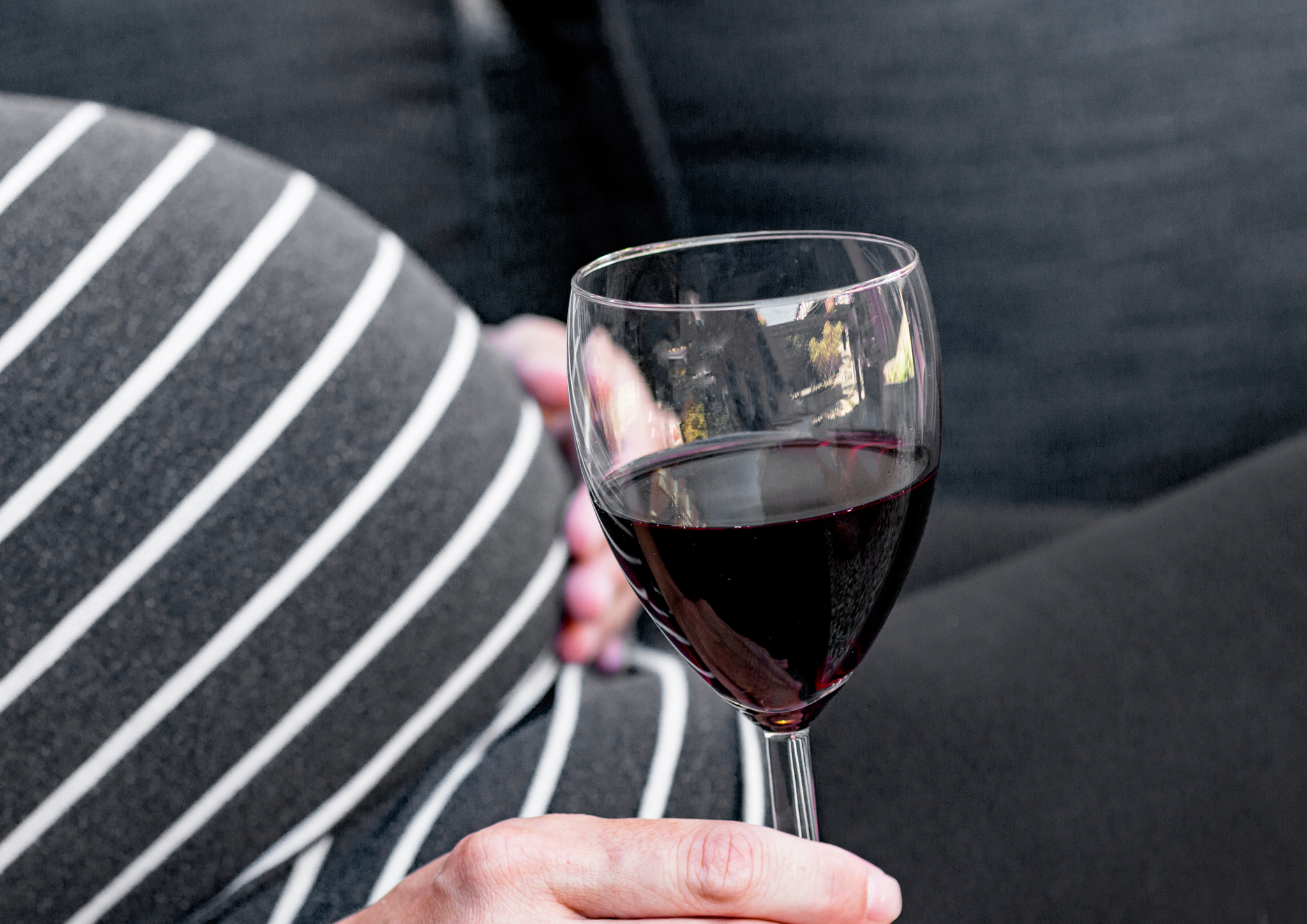
Alcohol consumption during pregnancy is strongly discouraged as it can lead to fetal alcohol spectrum disorders (FASDs),causing lifelong physical, behavioral, and cognitive impairments. By abstaining from alcohol, you protect your baby from potential harm and ensure optimal growth and development. Similarly, avoiding illicit drugs is essential for safeguarding fetal health and reducing the risk of birth defects, withdrawal symptoms, and other complications associated with substance abuse. According to the Centers for Disease Control and Prevention (CDC), , prenatal exposure to alcohol can cause a range of birth defects known as fetal alcohol spectrum disorders (FASDs), which can include physical, behavioral, and intellectual disabilities.
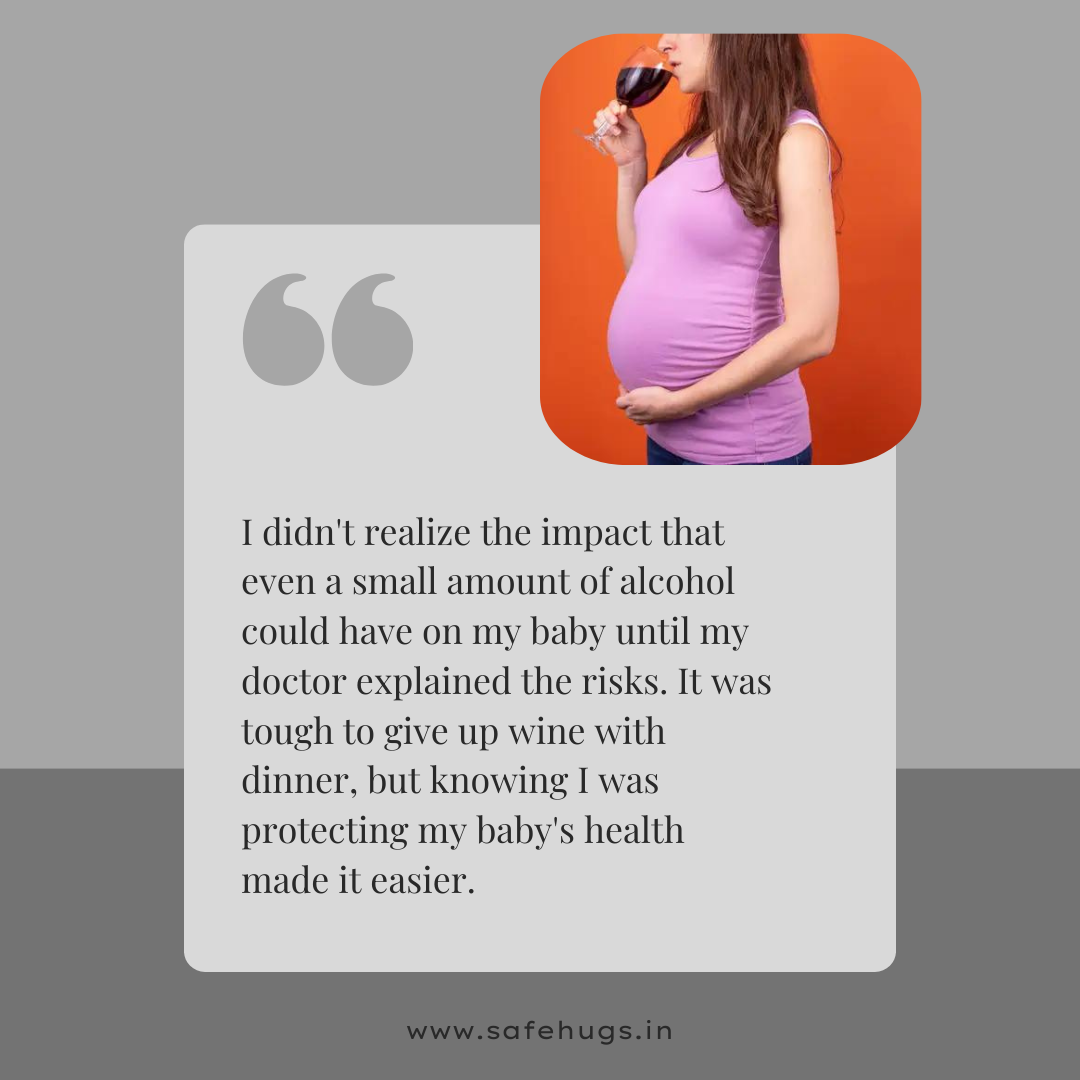
“Prolonged alcohol exposure in utero can have tragic effects on pregnancy and Fetal development ranging from fetal alcohol syndrome which is characterized by facial malformations, heart abnormalities, mental retardation and behavioral problems to increased risk of miscarriage and stillbirth.” Dr. Natasha Withers
Illicit Drugs:
Recent studies conducted in the US show that 4% of pregnant women use illicit drugs.
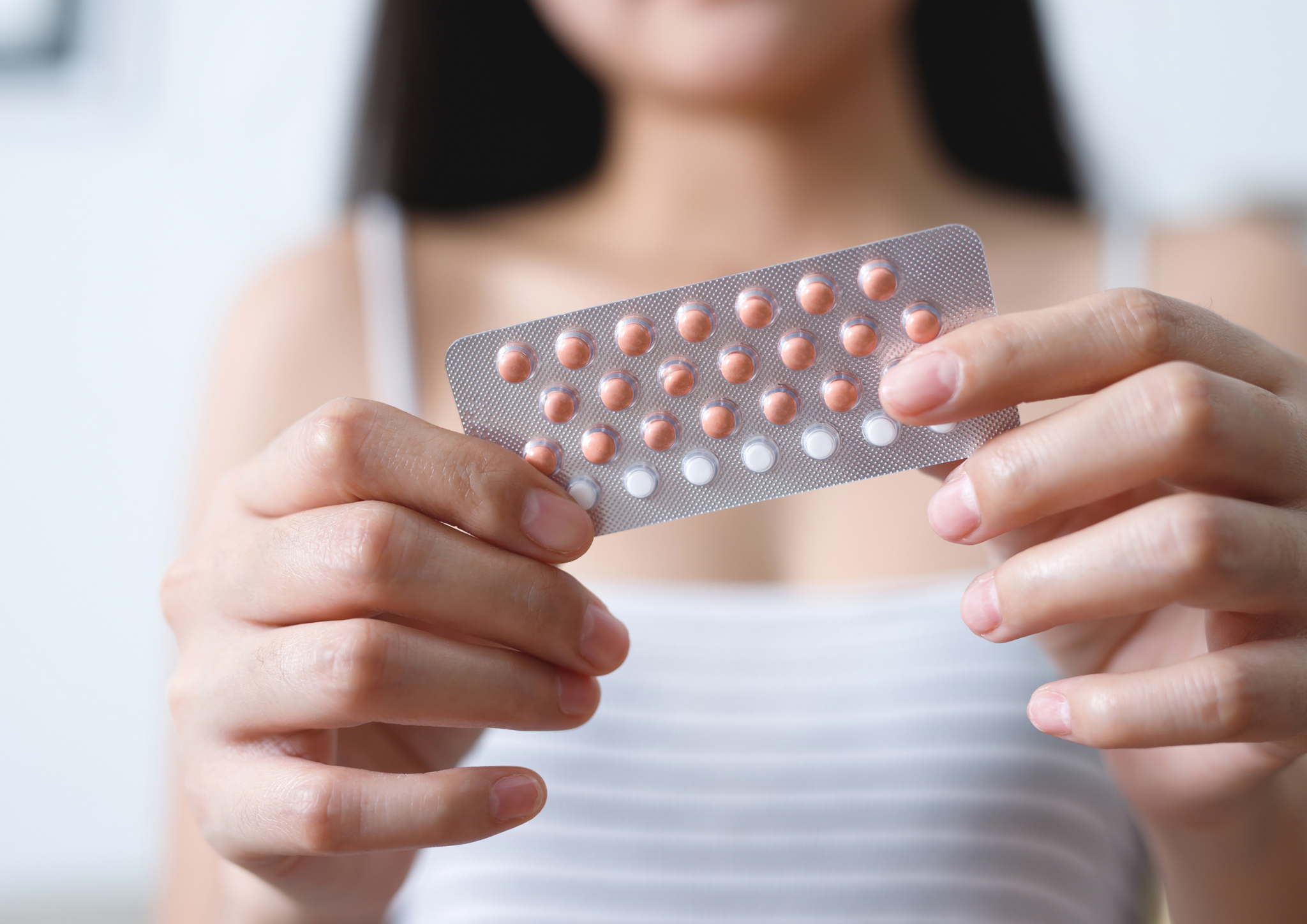
When it comes to use of any type of illegal or legal drug during pregnancy, there is absolutely no minimum level of drug that should be consumed drug taken by pregnant. Mom can have effect on the diploma of the baby at any time during the pregnancy.
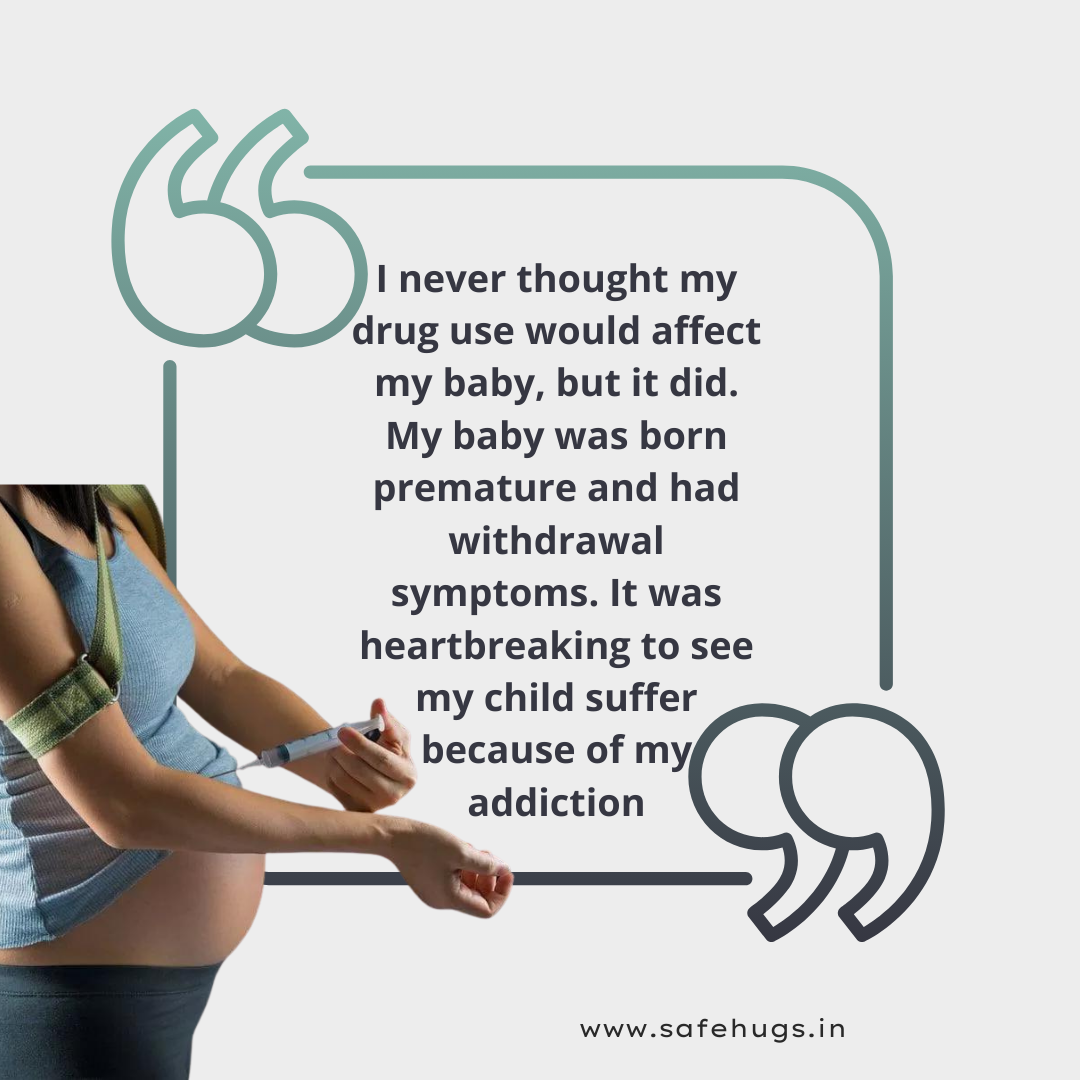
“I wish I could just stop if I could just stop without withdrawing or without hurting my baby I would, but I don't want anything to harm my baby so got to do what the doctor says.” - Drug addict, Lex Shelby
Nutrition and Dietary Guidelines:

Proper nutrition is crucial for supporting fetal growth and development during pregnancy. It's essential to avoid certain foods that may pose risks to maternal and fetal health, such as raw or undercooked meats, unpasteurized dairy products, and high-mercury fish. These foods can increase the risk of foodborne illnesses and mercury toxicity, which can adversely affect fetal development.
Instead, focus on a balanced diet rich in fruits, vegetables, lean proteins, whole grains, and dairy products. By nourishing your body with essential nutrients, you provide your baby with the building blocks needed for healthy growth and development. Additionally, staying hydrated and taking prenatal vitamins as recommended by your healthcare provider can further support maternal and fetal health throughout pregnancy.

“Pregnant women should not consume unpasteurized juices milks and soft cheeses lunch meat hot dogs and other cold cuts should only be consumed if they are heated until they are steaming hot red meat and eggs should also be cooked until well-done some fish have a high mercury content usually larger game fish such as white albacore, tuna and should be limited to 6 ounces per week fish should never be consumed raw during pregnancy” Amanda Hyerdal
High-Mercury Fish:
The third group in the advice from the FDA and EPA lists 7 fish to avoid eating during pregnancy because of high mercury levels in these fish (shark, swordfish, king mackerel, tilefish from the Gulf of Mexico, orange roughie, marlin, and bigeye tuna)
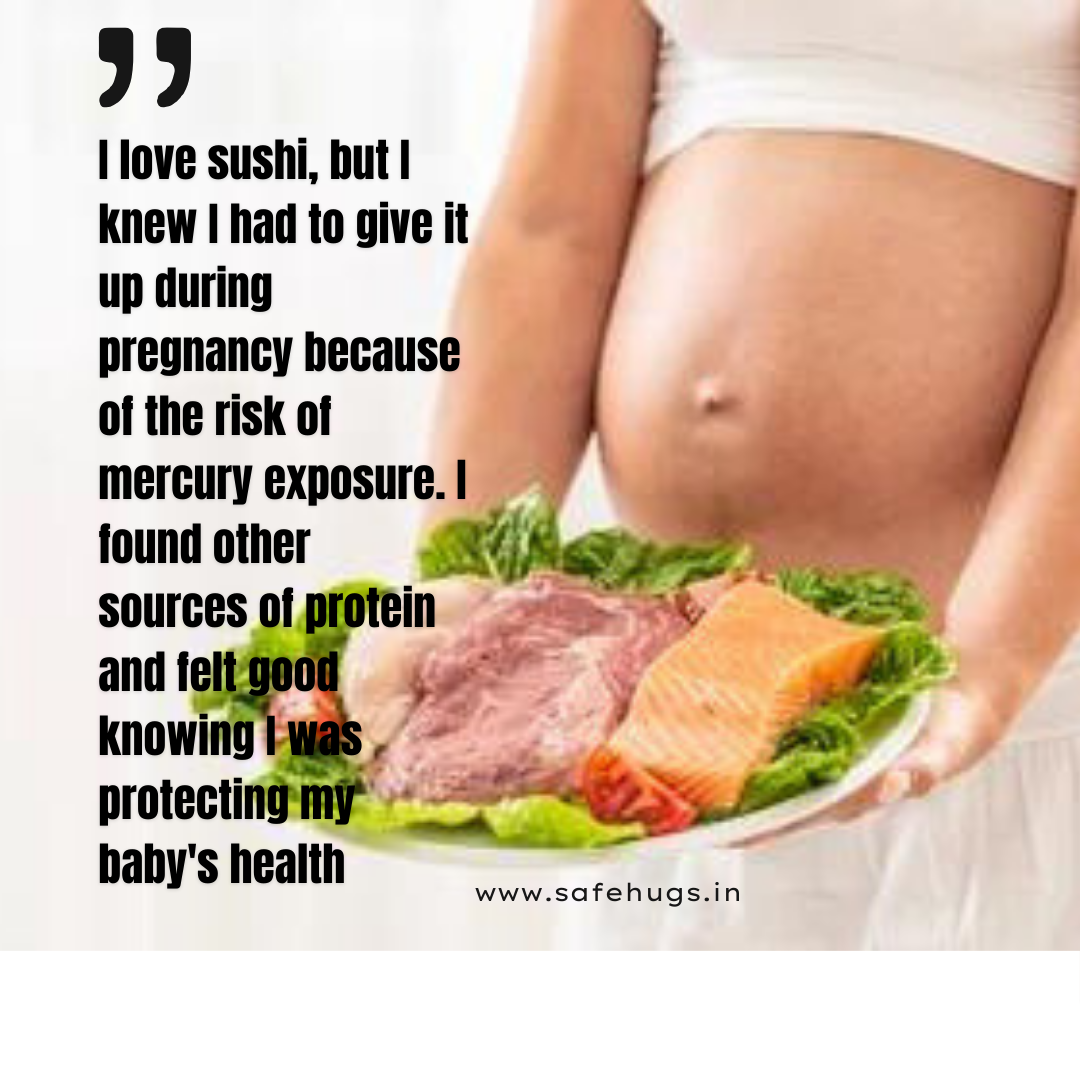
Listeriosis a foodborne illness caused by the bacterium Listeria monocytogenes, can lead to miscarriage, stillbirth, or severe illness in newborns. Pregnant women are at an increased risk of listeriosis and should take extra precautions to avoid high-risk foods.
Excessive Caffeine:

Usually, 150 to 200 mg of caffeine per day that amounts to about one to two cups of coffee a day is allowed during pregnancy. Any excessive amount beyond this is not advisable because it can cause side effects in the baby and also in the mother. Journal of endocrinology and centered around female rodents now researchers found that high amounts of caffeine during pregnancy could damage not just the newborn's liver but also affect their overall growth and development so a big deal it could also lead to lower birth weights and increase the risk of liver disease later on in life.

"I was surprised at how much better I felt after reducing my caffeine intake during pregnancy. My energy levels were more stable, I slept better, and my mood improved. It was a simple change that made a big difference for me and my baby." - says an expectant mother.
Environmental Hazards:
Environmental factors can also impact pregnancy outcomes, so it's essential to minimize exposure to potential hazards.
Exposure to Chemicals:
Chemical exposures from cleaning products, pesticides, and environmental pollutants can pose risks to maternal and fetal health. By opting for natural or eco-friendly alternatives and practicing good ventilation, you can reduce exposure to harmful chemicals and create a safer environment for you and your baby.
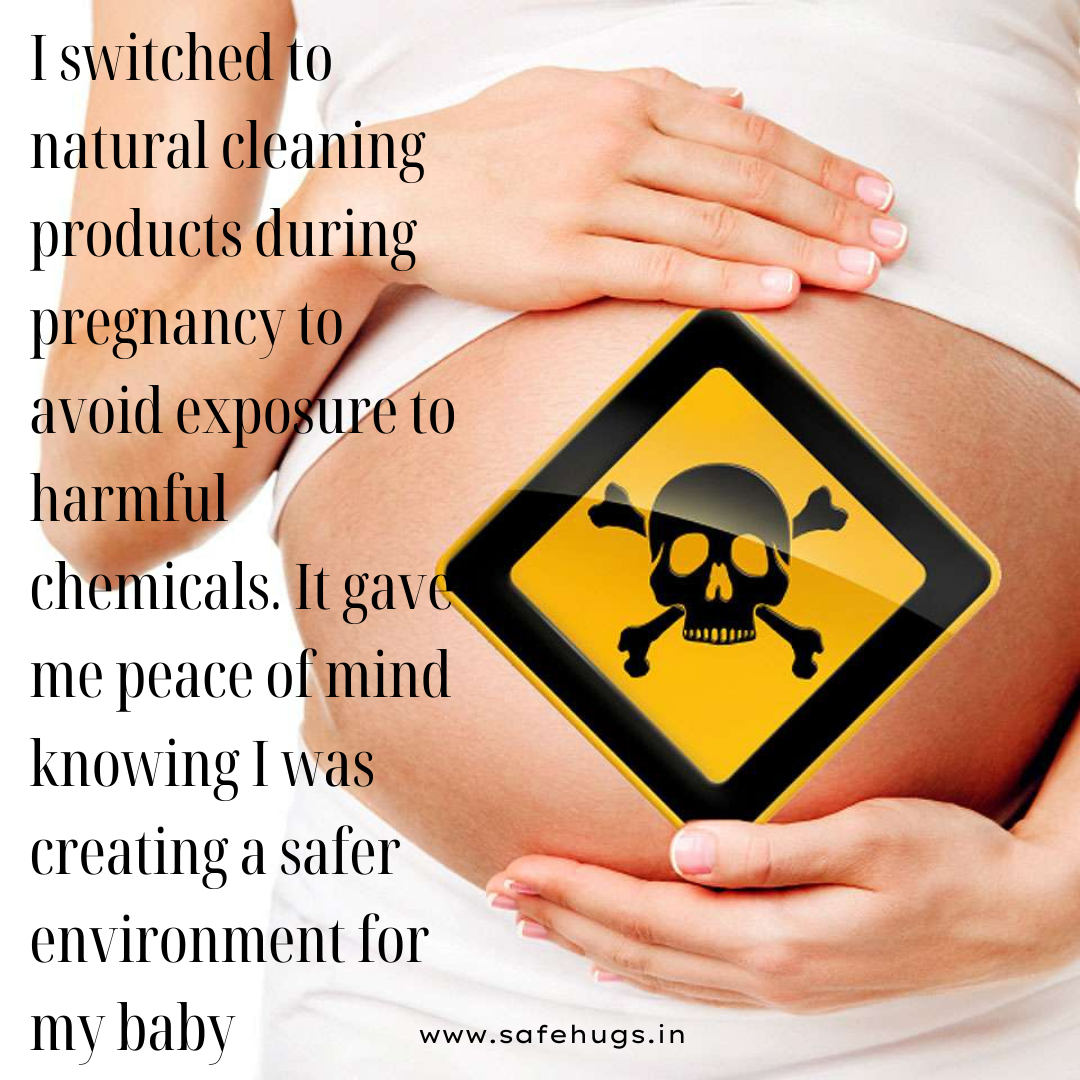
Radiation:
Radiation exposure, whether from medical procedures like X-rays or excessive sun exposure, should also be minimized during pregnancy to protect the developing fetus. When undergoing medical imaging or treatments, inform healthcare providers of your pregnancy status to ensure appropriate precautions are taken to safeguard fetal health. Additionally, avoiding extreme temperatures, such as hot tubs or saunas, can help prevent overheating and potential complications during pregnancy.
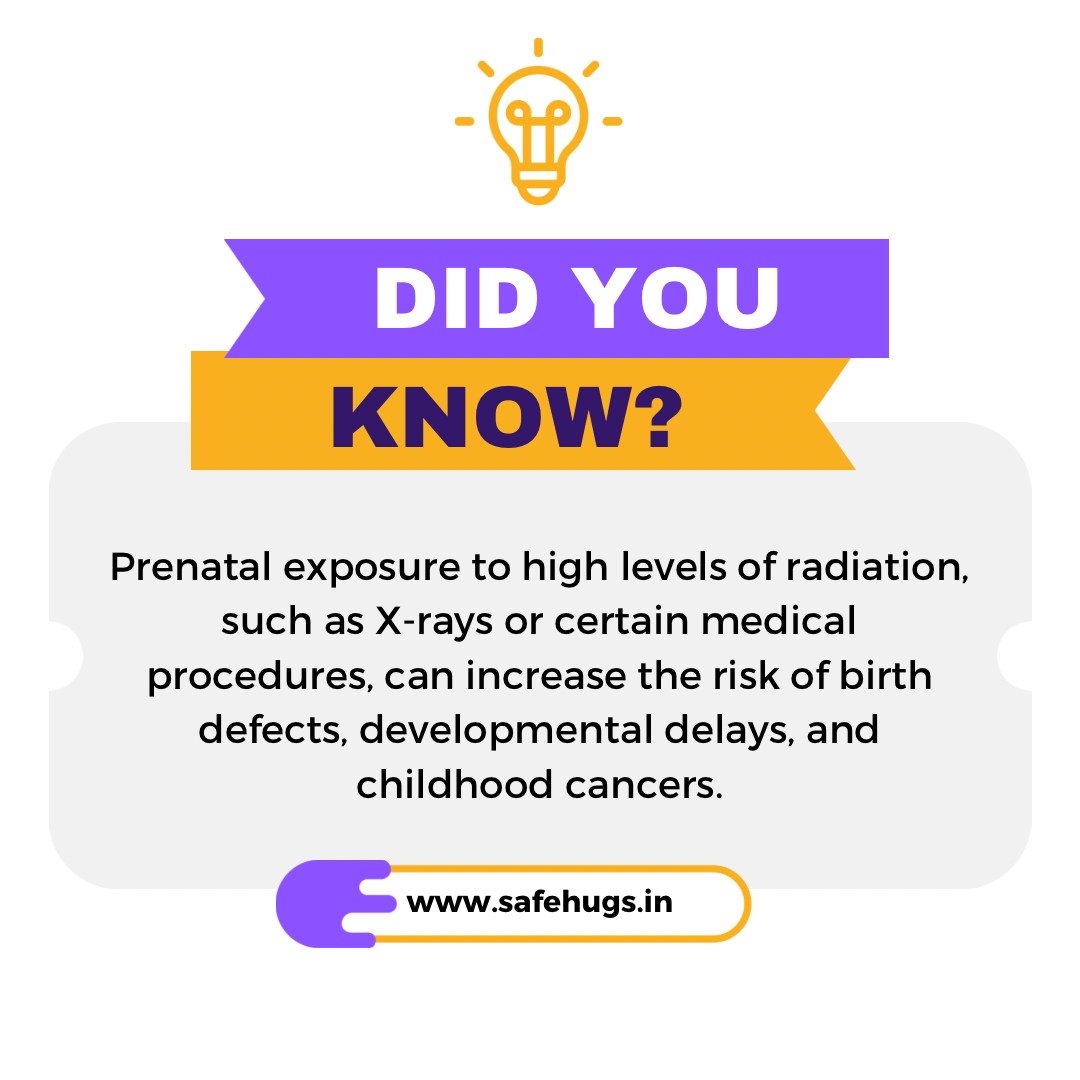
Extreme Temperatures:
Exposure to extreme temperatures during pregnancy can pose risks such as dehydration, overheating, or hypothermia for the mother and baby. It may lead to complications like preterm birth or low birth weight, affecting fetal development and maternal health. Pregnant women should stay hydrated, dress appropriately, and seek shelter during extreme weather to mitigate these risks and ensure a safe pregnancy. Consulting healthcare providers for personalized advice is recommended.
Physical Activity and Exercise:
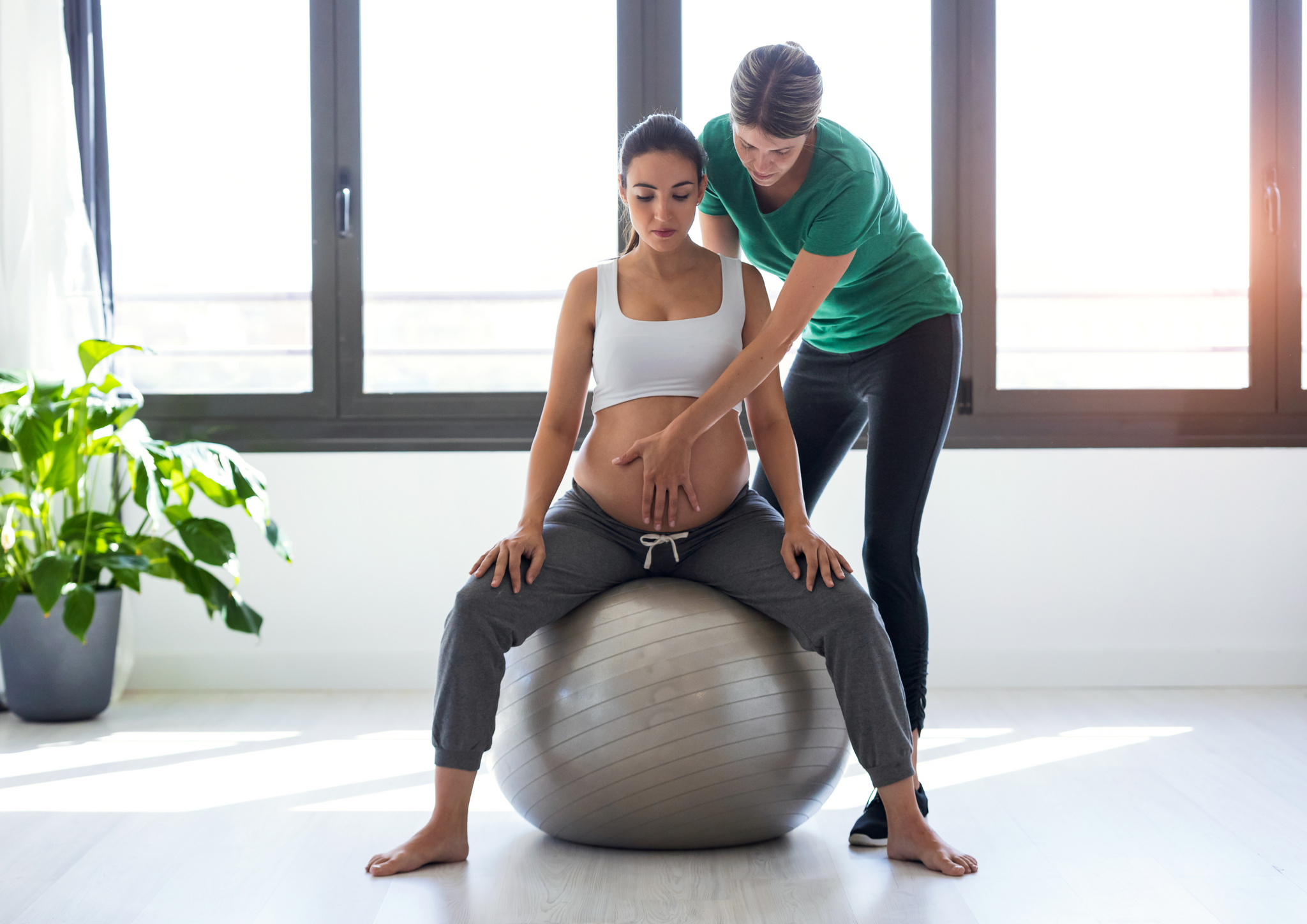
Maintaining a regular exercise routine or activity would help you stay healthy during pregnancy and help you feel better during pregnancy. Exercise would help reduce back pain, help improve your posture and also improve your stamina to endure through labor and delivery. It also decreases your chances of getting diabetes during pregnancy.
High-Impact Activities:
Healthcare experts advise pregnant women to approach high-impact activities with caution. While regular exercise is beneficial for overall health during pregnancy, high-impact activities such as running or vigorous aerobics may increase the risk of injury or strain, especially as the pregnancy progresses. It's essential for expectant mothers to listen to their bodies, modify exercises as needed, and consult with a healthcare provider before engaging in high-impact activities to ensure the safety of both mother and baby.
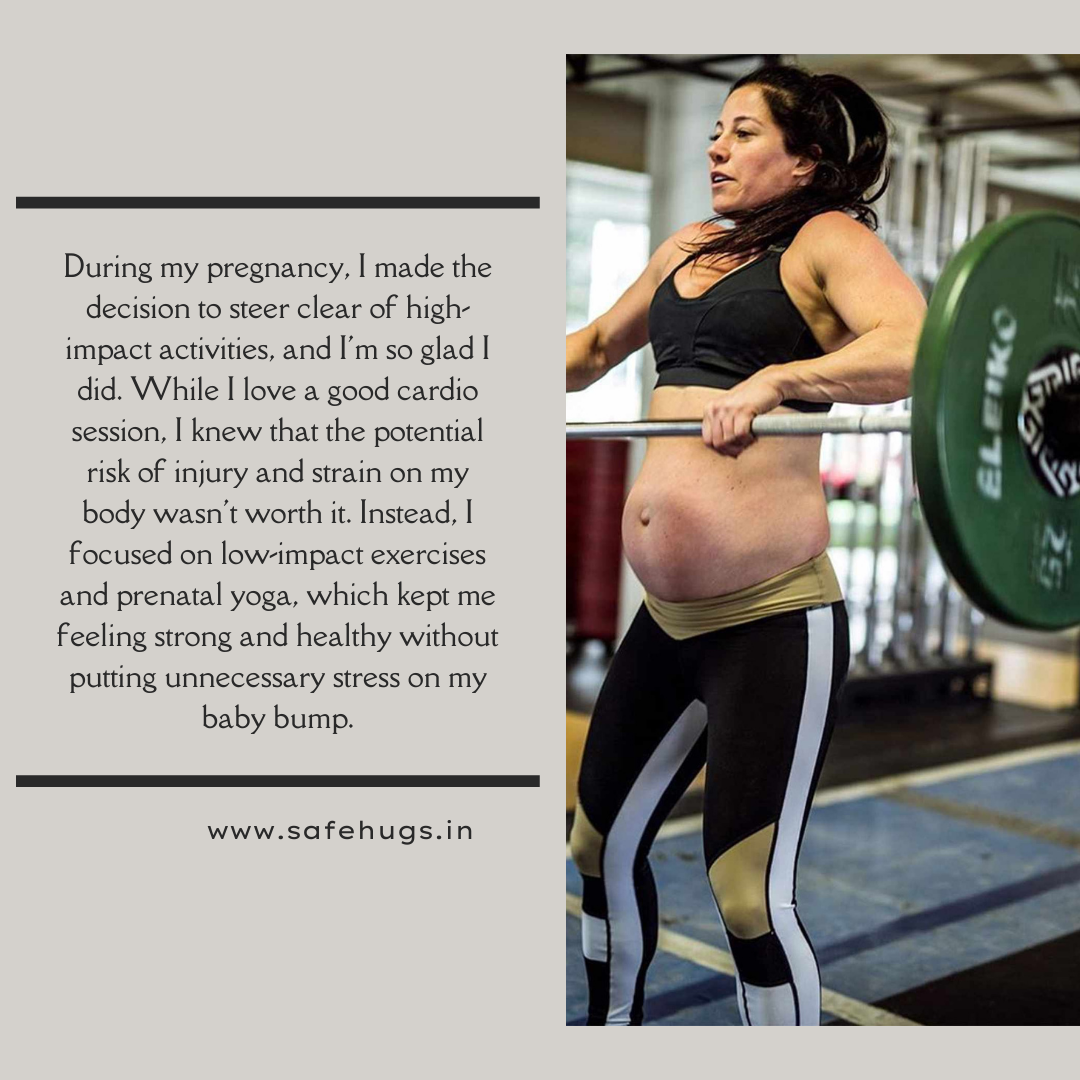
Prenatal Yoga and Low-Impact Workouts:
Prenatal yoga and low-impact workouts offer gentle yet effective alternatives to high-impact activities during pregnancy. These exercises focus on flexibility, strength, and relaxation, providing numerous benefits for expectant mothers without placing undue stress on the body. Prenatal yoga, in particular, incorporates breathing techniques and gentle stretches tailored to the needs of pregnant women, promoting relaxation and reducing common discomforts such as back pain and swelling. Low-impact workouts such as swimming or walking are also excellent options for maintaining fitness and promoting overall well-being throughout pregnancy. By incorporating prenatal yoga and low-impact workouts into their routine, expectant mothers can stay active and healthy while minimizing the risk of injury or strain.
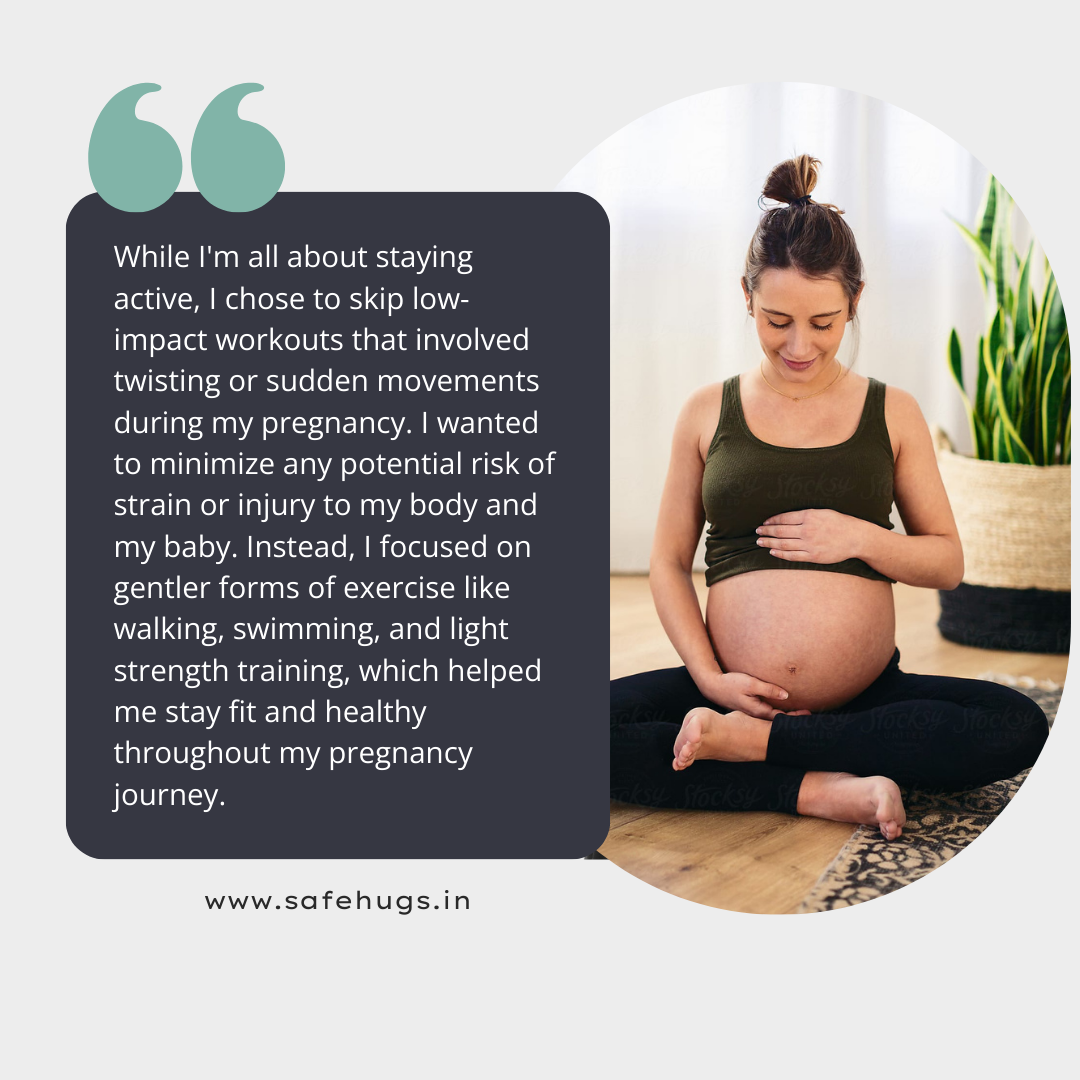
Here are few Tips for Expecting Mothers that they should follow in order to have a healthy pregnancy:
Avoid high-risk foods:
Steer clear of raw or undercooked meats, unpasteurized dairy products, and certain types of fish that may contain high levels of mercury, which can be harmful to the developing baby. opt for cooked meats, pasteurized dairy, and low-mercury fish options instead.
Limit caffeine intake:
While moderate caffeine consumption is generally considered safe during pregnancy, it's advisable to limit intake to 200 mg per day to reduce the risk of pregnancy complications. Be mindful of hidden sources of caffeine in foods and beverages such as chocolate and certain medications.
Say no to alcohol and tobacco:
It's well-established that alcohol and tobacco can have harmful effects on fetal development. Avoid alcohol entirely during pregnancy, and refrain from smoking or exposure to secondhand smoke to protect the health of your baby.
Practice proper food safety:
Wash fruits and vegetables thoroughly, cook meat and eggs thoroughly, and avoid unpasteurized juices and dairy products to reduce the risk of foodborne illnesses such as listeria or salmonella, which can be dangerous during pregnancy.
Be cautious with medications:
Consult with a healthcare provider before taking any medications, including over the counter and herbal remedies, during pregnancy. Some medications may pose risks to the developing baby, so it's essential to weigh the benefits and potential risks under medical supervision.
Certain medications, such as isotretinoin (commonly used to treat acne) and certain antibiotics, are known to cause birth defects and should be avoided during pregnancy unless deemed absolutely necessary by a healthcare provider.
Conclusion:
Navigating pregnancy involves making informed decisions and taking proactive steps to protect your health and the health of your baby. By avoiding harmful substances, following proper nutrition guidelines, minimizing exposure to environmental hazards, and listening to your body's cues, you can ensure a healthy pregnancy journey. Remember, every choice you make has the potential to impact your baby's development, so prioritize self-care and seek guidance from healthcare professionals whenever needed. With dedication and care, you can embark on this transformative journey with confidence and peace of mind.






























